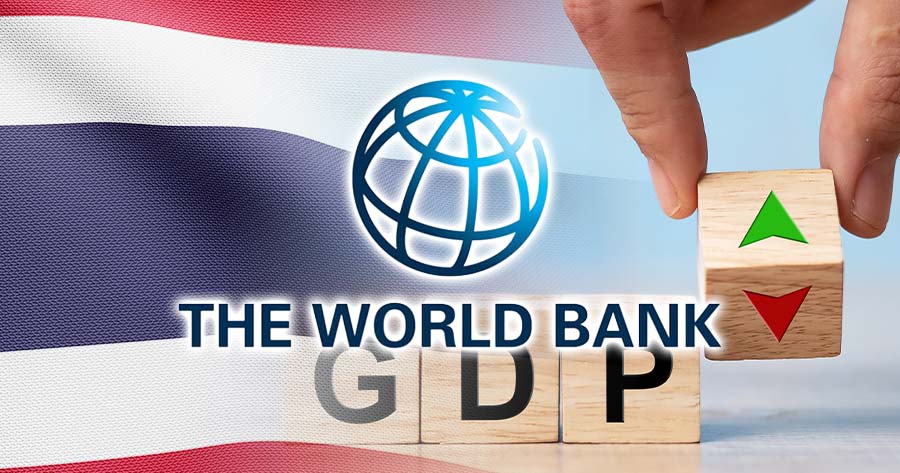According to the World Bank’s latest announcement on Monday, Thailand’s economic growth is anticipated to reach 2.8% this year, with a predicted acceleration to 3.0% in 2025. These projections reflect the impact of weak exports and a delayed budget on the country’s economic performance.
The growth forecasts for 2024 and 2025 have been revised down from the earlier projections of 3.2% and 3.1%, respectively, as outlined in December. In 2023, Thailand’s economy expanded by 1.9%, but unexpectedly contracted by 0.6% in the final quarter compared to the third quarter of the same year.
The country’s central bank also adjusted its 2024 growth outlook in February, revising it to a range of 2.5% to 3.0% from the previous 3.2%. Factors contributing to this downgrade include the impact of slowing global trade and delayed government spending attributed to the delayed budget.
The World Bank highlighted dimmer prospects for exports and public investment as key drivers behind the revised growth outlook. Additionally, the Shipper’s Council expects export growth to range between 1% and 2% for the current year.
Tourism and private consumption are earmarked as crucial drivers of growth, with tourist arrivals projected to recover to 90% of pre-pandemic levels in 2024. In an ambitious target, the Thai government aims to attract a record 40 million foreign visitors this year, following the reception of 28 million visitors in 2023.
Prime Minister Srettha Thavisin has labeled the current economic situation as a “crisis” necessitating substantial fiscal stimulus.
The government’s delayed signature policy involves a $14 billion stimulus package distributed to 50 million Thai citizens through a ‘digital wallet’ scheme. This initiative is expected to potentially add 1% to economic growth but may lead to an increase in public debt, noted World Bank Senior Economist Kiatipong Ariyapruchya.





